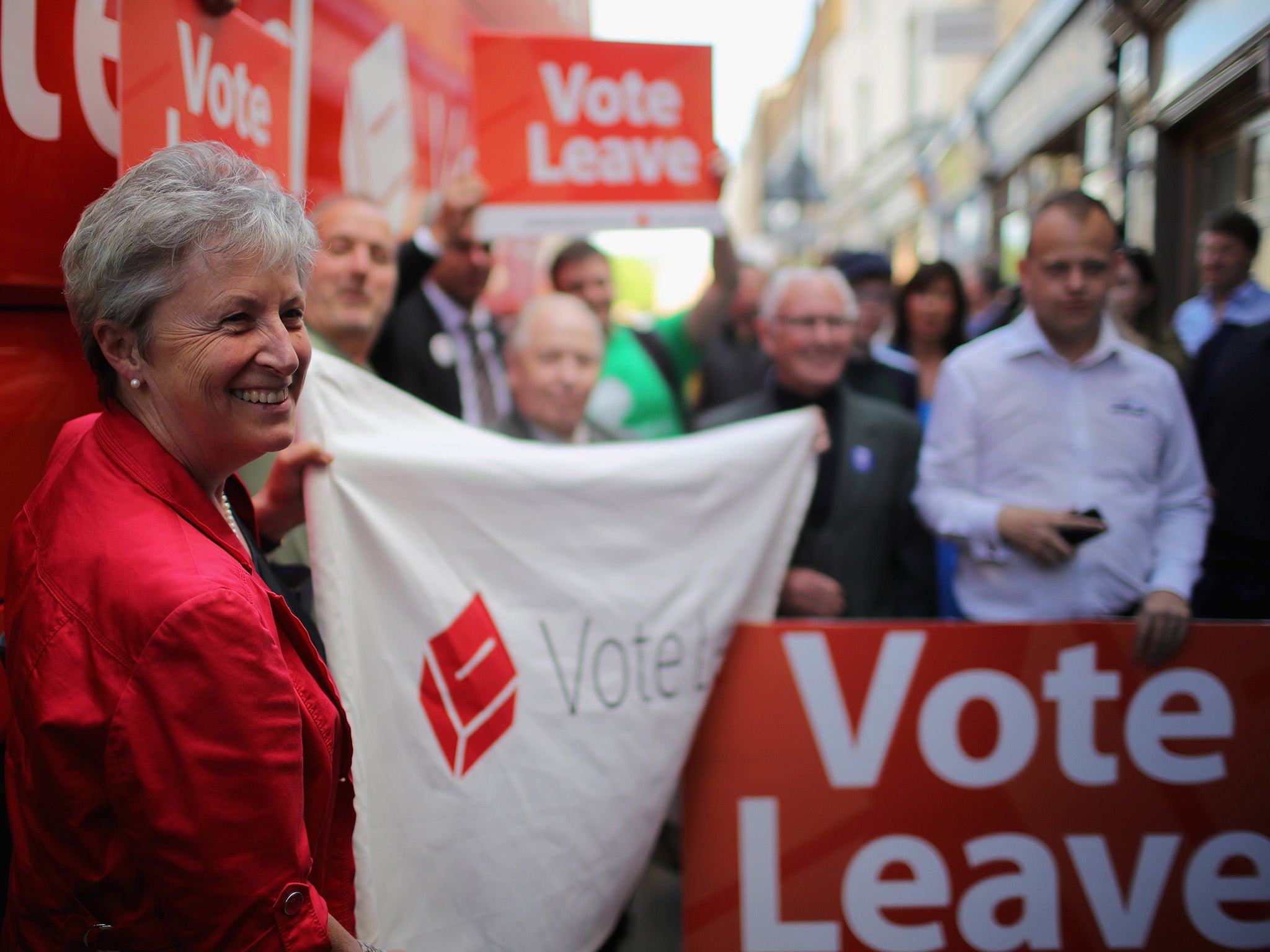British public still believe Vote Leave ‘£350million a week to EU’ myth from Brexit referendum
Efforts to debunk have not worked
Nearly half of the British public still believe the false claim from the Brexit referendum that the UK sends £350m a week to the EU, despite persistent attempts to debunk the myth.
A new study by King’s College London of attitudes to Brexit found that 42 per cent of people who had heard of the claim still believe it is true, while just 36 per cent thought it was false and 22 per cent were unsure.
The research, conducted with the help of pollster Ipsos MORI, shows that sustained criticism of the false claim by the UK Statistics Authority and others has had little effect, with perceptions mostly unchanged since before the referendum.
The sustained belief also comes despite the government having shown no sign of spending the supposed £350m extra a week on the NHS, as the advertisements controversially suggested.
The official Vote Leave campaign put the claim on the side of a big red bus and ran it in targeted internet adverts aimed at swing voters, turning the Brexit vote into a referendum on austerity.
The former boss of the Vote Leave campaign, Dominic Cummings, admitted after the referendum that “all our research and the close result strongly suggests” that Remain would have won without the advert.
“It was clearly the most effective argument, not only with the crucial swing [vote] but with almost every demographic,” he said in 2017.
It’s not as simple as people just changing their minds if they had the correct facts
The UK Statistics Authority wrote to Vote Leave during the referendum campaign to say the claim was “misleading and undermines trust in official statistics”, stating that it excluded the UK’s rebate, as well as payments received by the UK from the EU. The figure also fails to take into account the contribution to the treasury of trade and business that would not have happened without the EU single market. Sir Andrew Dilnot, the chair of the authority, said the figure was likely closer to £136m per week.
In the run-up to the plebiscite in 2016 the public were split along similar lines as they are now, with 47 per cent believing the stat and 39 per cent against it. If anything, the public has become less sure, with just 14 per cent having previously said they don’t know, according to a survey by the same pollster Ipsos MORI.
Professor Bobby Duffy, director of the King’s College London policy institute, which carried out the research, told The Independent: “These misperceptions raise important questions about the basis of our decisionmaking. But as I point out in our work on misperceptions, it’s not as simple as people just changing their minds if they had the correct facts – it’s more emotional than that.
“But it’s a very clear sign of how difficult it will be to bring the country together – the fact that different groups see the same realities so differently shows how divided we are.”

The comprehensive research also catalogues a number of other misconceptions about Brexit, particularly around immigration.
A recent report by the Migration Advisory Committee concluded that EU migrants contribute £4.7bn more in taxes than they use in welfare benefits and services – but the King’s College London study found that only 29 per cent of the public correctly believed this, dropping to 16 per cent of Leave voters.
Thirty nine per cent of the public and 53 per cent of Leave supporters believe that European immigration has decreased the quality of healthcare in the UK, despite evidence from the official report showing this was not the case, and that a shortage of EU healthcare workers is actually increasing challenges for the NHS.
On the £350m a week claim, Conservative voters and Leave voters were particularly susceptible to the misinformation: with 54 per cent and 61 per cent of each buying the claim. Just 33 per cent of Labour voters, 22 per cent of Lib Dem voters and 23 per cent of Remain voters thought it was true.
Nearly a third (32 per cent) of Conservative Remain voters also thought the message, which was mostly fronted by Tory politicians like Boris Johnson, was correct – 67 per cent of all voters had heard of the claim.
Join our commenting forum
Join thought-provoking conversations, follow other Independent readers and see their replies
Comments
Bookmark popover
Removed from bookmarks